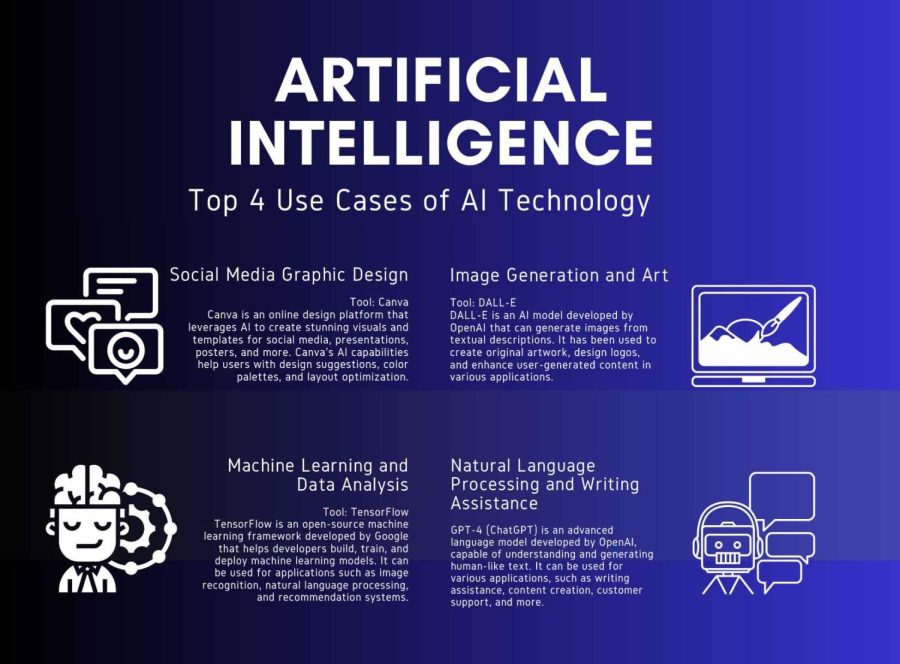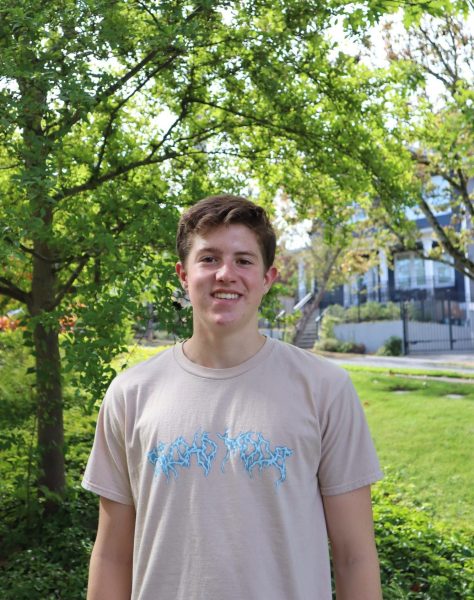ChatGPT: The AI Revolution and Plagiarism Controversy
May 19, 2023
Artificial intelligence, known shorthand as AI, has seen tremendous advancements in recent years, with art generators, closed caption creators, and chatbots like ChatGPT at the forefront of these developments. As a language model developed by tech company OpenAI, ChatGPT utilizes sophisticated architecture to generate human-like text based on user-inputted information.
ChatGPT has numerous applications, including assisting with language translation, creating website content, generating responses in customer support systems, and even helping students do their homework. ChatGPT can predict a given text’s most appropriate response or continuation by analyzing vast amounts of data, making it a valuable tool in various fields. While this technology has been praised by many for its potential to revolutionize multiple industries, it has also raised concerns regarding plagiarism and disrupting job industries. ChatGPT has proven the ability to disrupt translators, writers, artists, public relations specialists, mathematicians, and various other professions. “With ChatGPT revolutionizing so many industries, it’s amazing to think about the potential benefits, but at the same time, I worry about the impact on job opportunities for future generations,” said Mario Perrina, ’25.
Despite the advantages offered by ChatGPT, its capabilities have raised concerns about the potential for AI-generated plagiarism. Students and professionals in various industries may be tempted to use AI-generated text as their own work, making it increasingly difficult for educators and creators to identify original content. Schools and workplaces have been developing new strategies for handling AI-generated plagiarism to address this issue. For example, Seattle Public Schools blocked ChatGPT on all school devices in December, in addition to New York and Los Angeles school districts. Passing AI-generated content as one’s one without proper attribution violates Prep’s academic integrity policy and could lead to severe consequences. “Talking about it openly is critical; we should recreate education in a way that is more authentic to critical thinking that requires the human brain to make sure students are gaining the skills that we want without falling back on AI as a crutch,” said Mrs. Kramer, who oversees EdTech at Prep.
As the prevalence of AI-generated content increases, anti-plagiarism tools must adapt to stay effective against modern forms of cheating. Turnitin.com, a popular platform that many educators, including teachers at Prep, use to detect plagiarism, has recently updated its complicated algorithms to predict if a student’s work was AI-generated. By analyzing patterns in ChatGPT’s writing style and other subtle nuances that differentiate AI-generated content from human-written text, Turnitin.com can now identify and flag potential instances of plagiarism.
While ChatGPT and other AI language models have opened up a world of possibilities, they have also raised important questions about the ethical implications of AI-generated content. As technology advances, a balance must be found between harnessing the potential of AI and preserving the value of human-generated content. By utilizing tools like Turnitin.com to detect AI-generated plagiarism and fostering open conversations about academic integrity, the educational environment can remain a place where original thought and creativity are celebrated.



